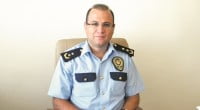Debating the constitution

Date posted: March 13, 2012
Mümtazer Türköne, 12 March 2012
I attended the debates on a new constitution over the weekend. The environment that the Abant Platform offers is intense and rich. Opposite ideas and views meet there, and holders of these views debate matters. Communicating directly with those who hold different views, reacting to their views instantly and reviewing the responses they get improves the democratic experience in a multidimensional way.
The Abant Platform has created a new style in political discussions in Turkey through its 20-year experience. This style should be called the Turkish version of deliberative democracy.
The most visible strength of deliberative democracy is its ability to change the parties involved. The deliberative environment not only allows the holders of different views to express themselves but also provides a forum for the exchange of different views. You have the chance to see just what the view you ardently support and promote equates to. You get to put your views to the test, through the lens of others. In the end, you review the weak parts of your views and polish the stronger sides. In the end, you change. For this reason, deliberative democracy offers an opportunity to form new unions.
The Abant Platform has discussed the most controversial aspects of the process of making a new constitution. Once the issues, classified into five main groups, are resolved, creating a new constitution will become a lot easier. For this reason, the findings and conclusions of the deliberations held under the heading, “Framework for a New Constitution,” in Abant provide insights and hints about the content of the new constitution.
The right to education in a person’s native language is the most controversial issue in the making of a new constitution. But when you deliberate this matter and seek to resolve the problem, a whole different outlook emerges. Once you acknowledge the right to education in one’s native language as a universal right, the issue is not resolved; to the contrary, it starts right there. How would you offer this service? The answers to this question, as well as examining the dynamics of the demand for education in one’s native language, will radically change one’s approach to this matter. Not banning education in one’s native language is a solution that all agree on. But what would happen once the ban is lifted? This represents an advanced stage, and even those who oppose the right to education in a person’s native language find themselves in a wholly different position when answering this question.
The issue of decentralization is an important matter that is linked to the Kurdish issue. A geography-based solution on the constitutional level to the Kurdish issue will not resolve the problems of the Kurds. Sixty percent of Kurds would still remain outside the scope of such a solution. The solutions offered so far, including democratic autonomy, fail to address all these problems.
The relationship between the state and religion and the religious schooling issue are also critical issues in the making of a new constitution. Once the focus is intensified upon the removal of the mandatory religious courses and classes, the monopoly of the state over religious schooling becomes an issue that restricts everything else. The Alevi citizens in particular raise serious objections to the status of the Religious Affairs Directorate. And this issue was raised at the Abant meeting. However, there is a lack of sufficient knowledge of the institutional structure of the Directorate and the services it provides. Deliberation changes the perspective and therefore the views. Deliberation clears the way for consensus and changes the demands raised by the involved parties as well.
Turkey is creating a new constitution. The efforts toward this constitution are being maintained through methods of deliberative democracy. The views spelled out in the final declaration of the Abant Platform offer strong insights on these matters. The conclusion? There is no single problem that will not be resolved.
Source: Today’s Zaman http://www.todayszaman.com/columnist-274082-debating-the-constitution.html
The Abant Platform is an independent think tank that takes its name from Lake Abant in the province of Bolu, the location of its first meeting. It is one of the most well-known programs of the GYV, which was established in 1994. Its mission and work were inspired by the GYV’s honorary president, Islamic scholar Fethullah Gülen.
Tags: Abant platform | Democracy | Hizmet and politics | New constitution in Turkey |
























